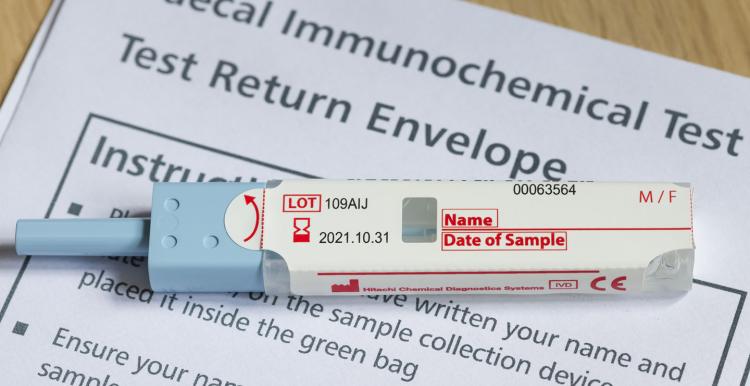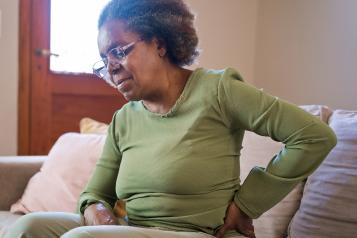Find out about cancer screening services

What is cervical screening?
Cervical screening (a smear test) checks the health of your cervix. The cervix is the opening to your womb from your vagina.
It's not a test for cancer, it's a test to help prevent cancer.
All women and people with a cervix aged 25 to 64 should be invited by letter. Your letter will tell you where you can go for cervical screening and how to book. Most cervical screening is done in a GP surgery by a female nurse or doctor.
- If you are aged between 25 and 49 you should attend screening once every 3 years.
- If you are aged 50 to 64 you should attend screening once every 5 years
What happens during the appointment?
During the screening appointment, a small sample of cells will be taken from your cervix. All samples taken at cervical screening appointments are tested for high risk Human Papillomavirus (HPV). This is the virus that causes nearly all cervical cancers. HPV is a very common virus that affects around 8 in 10 people; it is nothing to be embarrassed about, and in many cases, your immune system will naturally get rid of HPV.
If these types of HPV are not found, you do not need any further tests.
If these types of HPV are found, the sample is then checked for any changes in the cells of your cervix. These can then be treated before they get a chance to turn into cervical cancer.
The nurse or doctor will tell you when you can expect your results letter.
What is breast screening?
Breast screening (mammogram) uses X-rays to look for cancers that are too small to see or feel. Early detection may mean simpler and more successful treatment.
One in eight women will develop breast cancer at some time in their life. 80% of breast cancers occur in women over 50. The risk of breast cancer rises as women get older. This is why the breast screening programme only targets women in this age group. However, women of any age who are worried about breast symptoms should see their GP.
- You should get your first invite for breast screening between the ages of 50 and 53. Then you'll be invited every 3 years until you turn 71.
- Women aged 71 or over can still contact the local breast screening service to make an appointment every 3 years. Call London Breast Screening on 020 3758 2024 or email RF-TR.LondonBreastScreeningHub@nhs.net
- If you're a trans man, trans woman, or are non-binary you may be invited automatically, or you may need to talk to your GP surgery or call the local breast screening service to ask for an appointment. More information about screening for transgender people
- You need to be registered with a GP surgery to be invited for breast screening.
What happens during the appointment?
Breast screening is carried out by mammography. This is an x-ray examination of the breasts. The x-ray is taken by compressing the breasts, one at a time between two special x-ray plates. The compression only lasts a few seconds and there is no evidence this harms the breast. Compression is needed to keep the breast still, in order to get the clearest picture with the lowest amount of radiation.
Some women find mammography uncomfortable and some find it painful as the breasts have to be held firmly in position and pressed to take a good x-ray. This pain usually only lasts as long as the mammogram, although it may continue for some time in a small number of women.
Mammograms are reviewed and the results will be sent to both the patient and their GP within two weeks. In Islington, the Breast Screening Service is provided by The Central & East London Breast Screening Service which has produced an excellent resource answering a series of frequently asked questions (FAQs) about breast screening.
What is Bowel Cancer Screening?
You will not be asked to attend an appointment for bowel cancer screening. Instead, you will be sent a home test kit every 2 years. Using the kit, you send a small sample of poo to a lab, where they check it for tiny amounts of blood. Blood can be a sign of polyps or bowel cancer. Polyps are growths in the bowel. They are not cancer but may turn into cancer over time.
If the test finds anything unusual, you might be asked to go to hospital to have further tests to confirm or rule out cancer.
- The home test kits are available to everyone aged between 60 and 74 and within the next four years, they will be available to everyone between 50 and 59.
- Ensure your GP practice has your correct address so your kit is posted to the right place.
- If you're 75 or over, you can ask for a kit every 2 years by phoning the free bowel cancer screening helpline on 0800 707 60 60.
If you're worried about a family history of bowel cancer or have any symptoms, speak to a GP for advice. For more information about bowel cancer visit www.bowelcanceruk.org.uk


